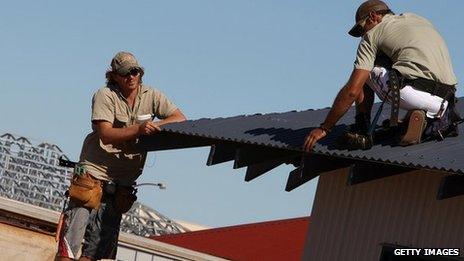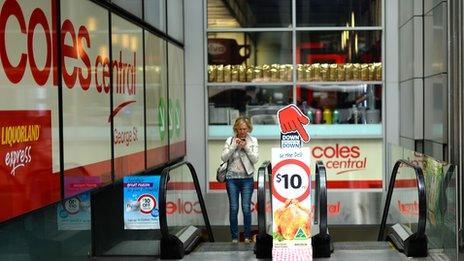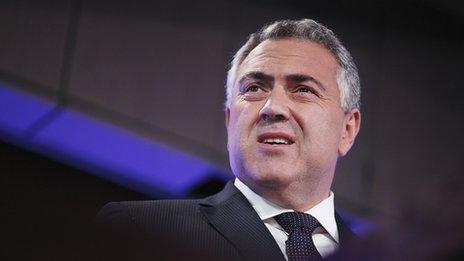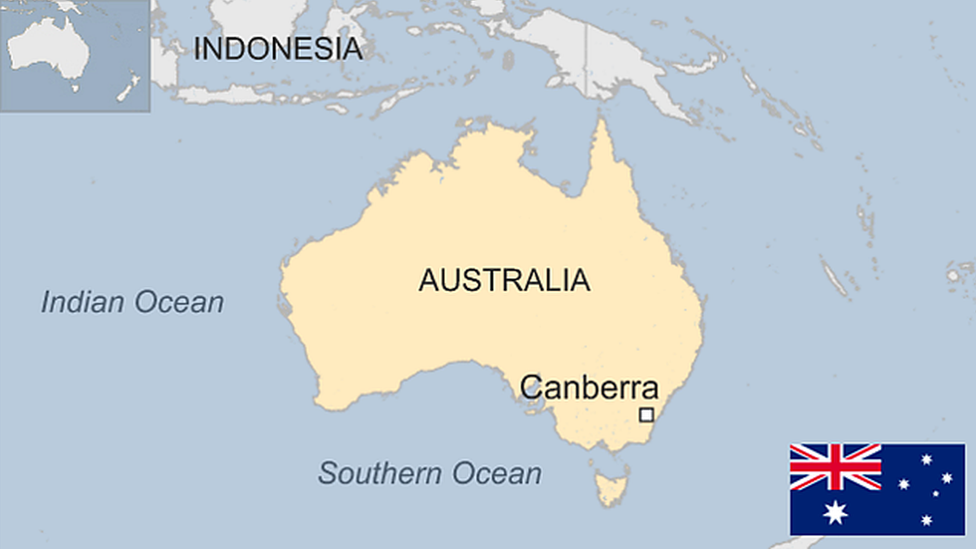Australian economy expands 0.8% in third quarter
- Published

Australia's housing construction sector is expected to boost the economy in 2014
Australia has reported slightly better-than-expected growth for the last quarter of 2013, boosted by exports and domestic consumption.
Official figures, external show gross domestic product (GDP) grew 0.8% in the three months to December.
Most forecasters predicted growth of 0.7% from the quarter before.
The release of the data followed a move by the country's central bank on Tuesday to keep interest rates on hold at 2.5%.
The Reserve Bank of Australia (RBA) has now held rates at their current level for seven months in a row.
Economic expansion in the quarter compared to a growth rate of 0.6% for the previous three months, and brings the annual GDP growth rate for 2013 to 2.8%.
The figures from the Australian Bureau of Statistics (ABS) suggest that exports and domestic consumption contributed far more to growth than mining - one of Australia's traditional powerhouses.
Mining added just 0.1% to growth in the quarter.
Shane Oliver, head of investment strategy with AMP Capital in Sydney, said other parts of the economy were taking up slack from the mining sector.
"There's a slump occurring in investment, there's no doubt about that as indicated in figures last week, but that's being offset by consumer spending, housing activity and trade," he said.
Others said the numbers were a bit better than expected, but not enough to move the central bank's current stance on rates.
"There was a good increase in private consumption, up 0.8%, and that combined with exports is the driver of growth," said Matthew Johnson, an interest rate strategist with UBS.

Official numbers suggest that Australia's domestic consumption contributed more to growth than mining
"Overall, it's a good quality result but not great... We still think rates are on hold this year."
Recent trade figures, external from ABS showed the country's current account deficit decreased by 19% in the same quarter.
The bureau said exports of goods and services for the period rose by 3%, while imports fell.
Housing expansion
RBA governor Glenn Stevens remained upbeat about the nation's economy but warned that spending in the resources sector was set to decline significantly.
"Recent information suggests slightly firmer consumer demand and foreshadows a solid expansion in housing construction," Mr Stevens said in a statement, external after the bank's monthly meeting on Tuesday.
"Some indicators of business conditions and confidence have shown improvement and exports are rising.
"At the same time, resources sector investment spending is set to decline significantly and, at this stage, signs of improvement in investment intentions in other sectors are only tentative."
The banks said that growth over time was "expected to strengthen, helped by continued low interest rates and the lower exchange rate".
- Published12 February 2014

- Published17 December 2013

- Published14 April 2023
